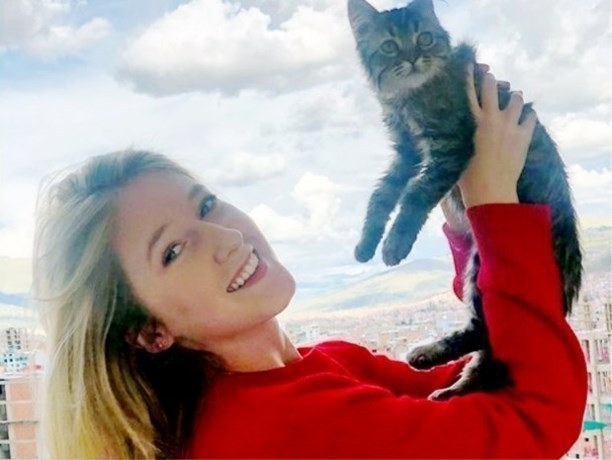Peruvian authorities have said that they are willing to take back a cat that risks being euthanised after an Antwerp student flew it into Belgium illegally.
In an email to animal rights group GAIA, Peru's Senasa, the equivalent to Belgium's food safety agency AFSCA, said that they had "never refused the entry of the cat" back into Peru.
Related News
"In this regard, I confirm that it is feasible for the cat to return to Peru," Senasa's national director wrote in the email, of which the animal rights group shared a screenshot alongside a press release.
The agency also doubled down on their message on Twitter, writing that "Lee was welcome in Peru" provided that he had "all the vaccines that guarantee his health."
The cat's entry into Belgium in April drew nationwide attention after AFSCA said the cat needed to be put to sleep because its owner, Antwerp student Selena Ali, had brought it into the country without following the mandatory procedures.
AFSCA said that allowing the cat to remain in Belgium would be dangerous because Peru was a high-risk country for rabies, and that the animal's history was not clear enough to ensure it was rabies-free.
In the email, Senasa said that the cat could indeed return provided a certificate of health issued by Belgian authorities was presented. Alternatively, a vaccination certificate issued by a Peruvian vet could also be accepted by Senasa.
Senasa's boss also that there had been an "apparent misunderstanding" between the agency and its Belgian counterpart, who had previously said that the cat's return was denied by Peruvian authorities.
Last week, AFSCA said that officials in Peru had refused to allow the animal to return, removing the last hope to avoid euthanasia.
AFSCA, which is competent for the control of animal illnesses, said that the cat's owner had been "irresponsible" in bringing it into the country without the appropriate documentation.
As the events unfolded, regional and federal authorities jumped into the debate as Ali attempted to gather public support through an online petition.
But while animal rights association has celebrated Senasa's latest move, in a press release issued on 28 May AFSCA said producing a health certificate was impossible.
"To send a cat to a third country, an official health certificate is required," the agency wrote. "Since the cat was imported illegally and without the necessary official documents from Peru, such a certificate cannot be issued."
A spokesperson for AFSCA told HLN that, before making a new move, the agency was waiting for an Antwerp court to deliver a judgement regarding the cat's fate.
Gabriela Galindo
The Brussels Times

